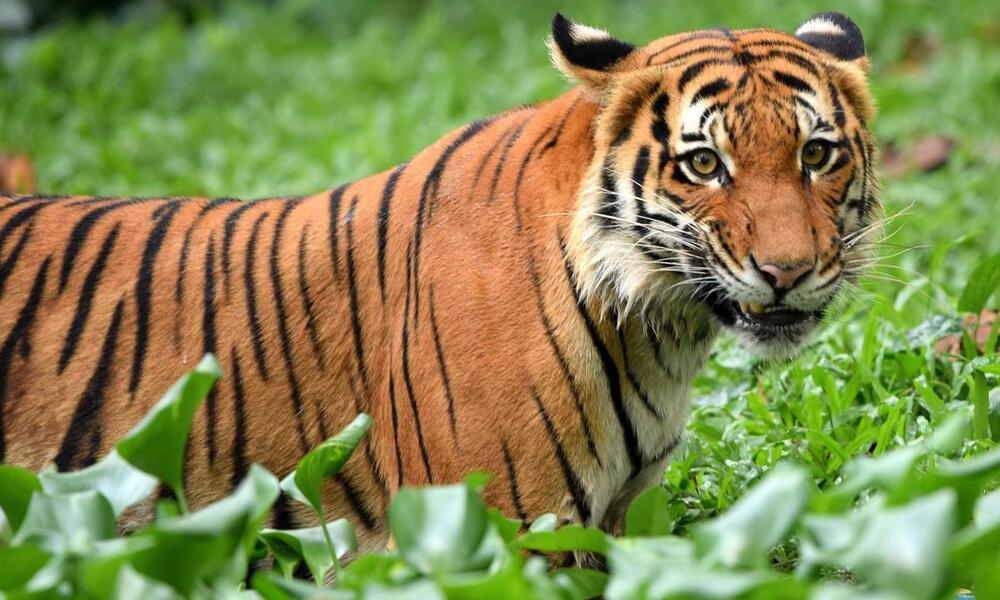What is CITES?
CITES, which stands for the Convention on International Trade in Endangered Species of Wild Fauna and Flora, is a global agreement among governments to regulate or ban international trade in species under threat.
In the mid-20th century, governments were beginning to recognize that trade in some wild animals and plants had a devastating impact on those species. These species were being driven toward extinction through unsustainable use for food, fuel, medicine, and other purposes.
And while individual governments could control what happened within their borders, they did not have a way to address the impacts of international trade in these species. In 1973, 21 countries addressed this issue by signing the CITES agreement.
Conservation impacts
CITES remains one of the cornerstones of international conservation. There are 184 member Parties and trade is regulated in more than 38,000 species. Representatives of CITES nations meet every two to three years at a Conference of the Parties (or COP) to review progress and adjust the lists of protected species, which are grouped into three categories with different levels of protection:
- Appendix I: Includes the world’s most endangered plants and animals, such as tigers and gorillas. International commercial trade in these species, or even parts of them, is completely banned, except in rare cases such as scientific research.
- Appendix II: Contains species like corals that are not yet threatened with extinction, but which could become threatened if unlimited trade were allowed. Also included are “look-alike” species that closely resemble those already on the list for conservation reasons. Plants and animals in this category can be traded internationally, but there are strict rules.
- Appendix III: Species whose trade is only regulated within a specific country can be placed on Appendix III if that country requires cooperation from other nations to help prevent exploitation.
CITES also brings together law enforcement officers from wildlife authorities, national parks, customs, and police agencies to collaborate on efforts to combat wildlife crime targeted at animals such as elephants and rhinos.
Bold action in Panama City, Panama
COP19 will be held in Panama City, Panama, from November 14 to 25, bringing together governments from around the world, enforcement agencies, and non-governmental organizations to review progress, update listings for species threatened by commerce, and strengthen management of the international trade of threatened and endangered species.
WWF hopes governments will recognize the serious threat of wildlife crime and will hold countries accountable for failing to meet their commitments to protecting endangered species. At CITES, WWF focuses on advocacy and the promotion of items related to the illegal trade of rhino horn, tiger parts, and certain marine species. WWF US’s top priorities at COP19 include:
- Phasing out ‘tiger farms’: As the number of tiger farms continues to be a threat to tiger conservation, particularly in China, Lao People’s Democratic Republic, Thailand, and Viet Nam—WWF calls on these governments to phase out their country's tiger farms and end the trade in tiger parts from any source. This has been an issue since 2007, before the inception of CITES, and not only has progress not been made but there are now more tigers in more tiger farms. Given the current scale of the threat and lack of progress, WWF is calling for specific, time-bound measures to be agreed upon at the COP to which the implicated Parties can be held accountable, with the possibility of sanctions should those deadlines not be met.
- Bringing rhinos back into focus: Illegal trade continues at high rates and we need to keep attention on what wild rhinos are facing. Over the past 10 years, the illegal killing of rhinos and the trafficking of their horns have grown to become a global criminal enterprise. It needs to be addressed as a transnational, organized crime by focusing on those who are driving it and profiting the most from this illegal trade. Corruption has been a key enabler in rhino horn trafficking, and it is crucial that we address it along the whole supply chain. International cooperation is critically important for investigating these global networks across countries along the supply chain.
Supporting continued focus on jaguars: We have a lot more to learn on how international trade is affecting jaguar populations, as this increasingly becomes a greater threat. WWF strongly supports the creation of a working group to establish a work program for the actions delegated to range States and the Secretariat and will support jaguar range states in improving data available on the species, including illegal trade, via the establishment of a long-term system for monitoring illegal killing and trade of jaguars, improving the management of protected and conserved areas, securing key jaguar corridors, promoting human-jaguar coexistence, catalyzing resource mobilization, and supporting and enhancing regional collaboration and engagement across multiple key stakeholders involved in jaguar conservation.
- Elevating protection for marine turtles: International trade in marine turtles continues to be a serious issue, and it has been a recurring topic of concern for past CITES COPs over the past 28 years. However, a number of studies over the past eight years have raised the alarm even further over the plight of marine turtle populations, particularly hawksbill turtles, largely due to domestic use and international trade. Illegal harvesting and trade continue to threaten them. To effectively address this urgent issue, we are looking for government support in adopting a new draft resolution for marine turtles, being put forward by the US, that would enable further protection under CITES.
Since the last CITES COP, international momentum has continued to build against wildlife crime, with a number of actions and commitments from governments. The COP represents an opportunity to put these commitments into action through strong measures on illegal wildlife trade, corruption, demand reduction, and compliance.
WWF will be pushing for the adoption of proposals critical to fighting the illegal wildlife trade and calling for countries that fail to meet their commitments to be held accountable under CITES, facing trade suspensions if necessary.
